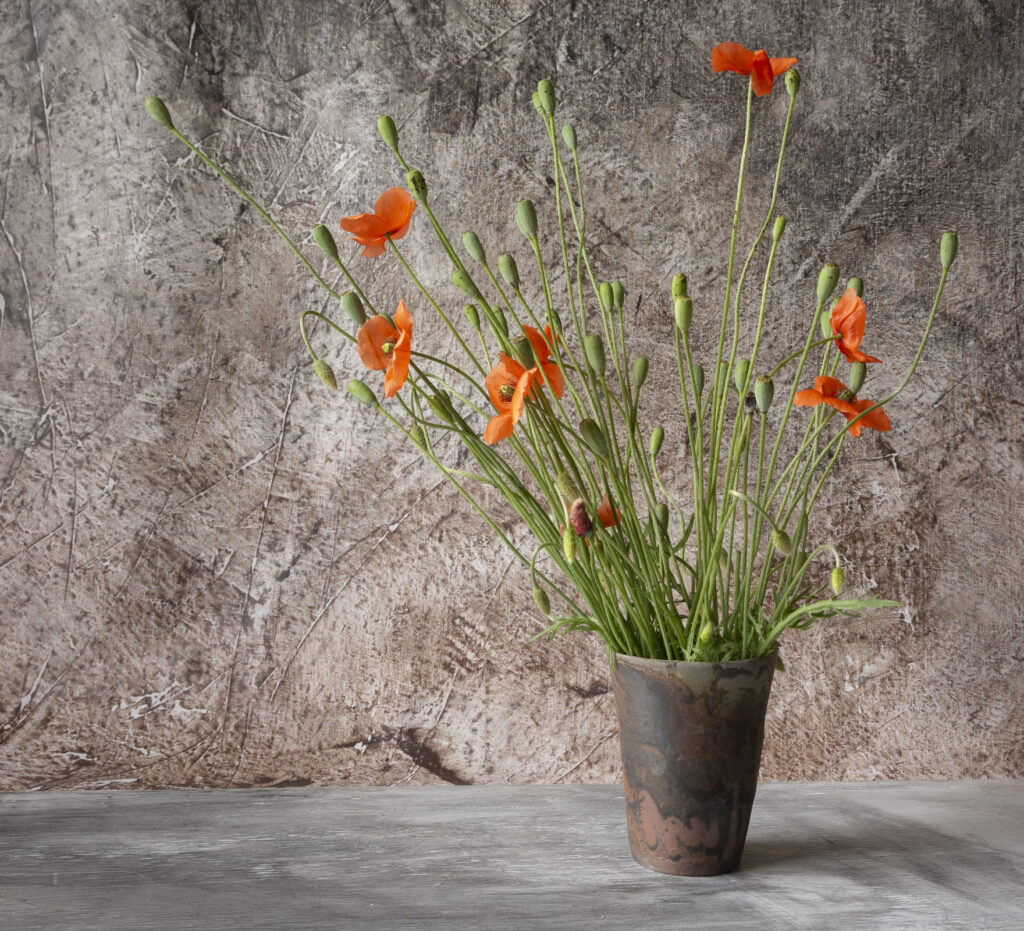When I went to France in 1977 I did not take a camera. I wanted to experience things without the framing by a lens. Focused on being a painter I thought a camera would interfere. Three years later when I went back for a summer I brought a camera and took photos of all the things that had stuck in my mind–the mountain, Mont Sainte-Victoire, the Chateau Noir, a camping trip, and my roommates. A friend recently reminded me of a hitchhiked car ride. She spoke much better French than I did. Our ride was with an angry man who hated the Arabs and spewed spit on his windshield as he vented. He dropped us off far from our destination. I remember the look of the trees and she remembers the angry words. I think about how sometimes foreign traveling without speaking the language allows you to experience a place in more childlike ways. You cannot adopt another person’s attitudes–you have to trust the visuals and your instincts.
When I work in the studio I try to work in that childlike way– working with my visual instinctive language. I don’t worry about the rules, but follow my nose, pursuing the energy and charting the tactile clues. It’s like working in a different language, one that resides below the radar that a camera can capture.
Now I live my life through my camera. I take photos of the wildflowers on my walks, progress in the garden, forms in process, and the pots as I imagine than to be used: the bud before the blossom, the fallen petals after the bloom. If I wonder when something happened I scroll through my photo archive to date the event. I love the freedom of a digital camera. I can take multiples of an idea. I can shoot really bad images just as markers to later work from. I am an artist in my own home trying to see it as a traveler in a foreign place.

In the past we listened to photographs. They heard our voice speak. Alive, active. What had been distance was memory. Dusk came, Pushed us forward, emptying the laboratory each night undisturbed by Erasure.
– Barbara Guest, from Photographs [LINK]
